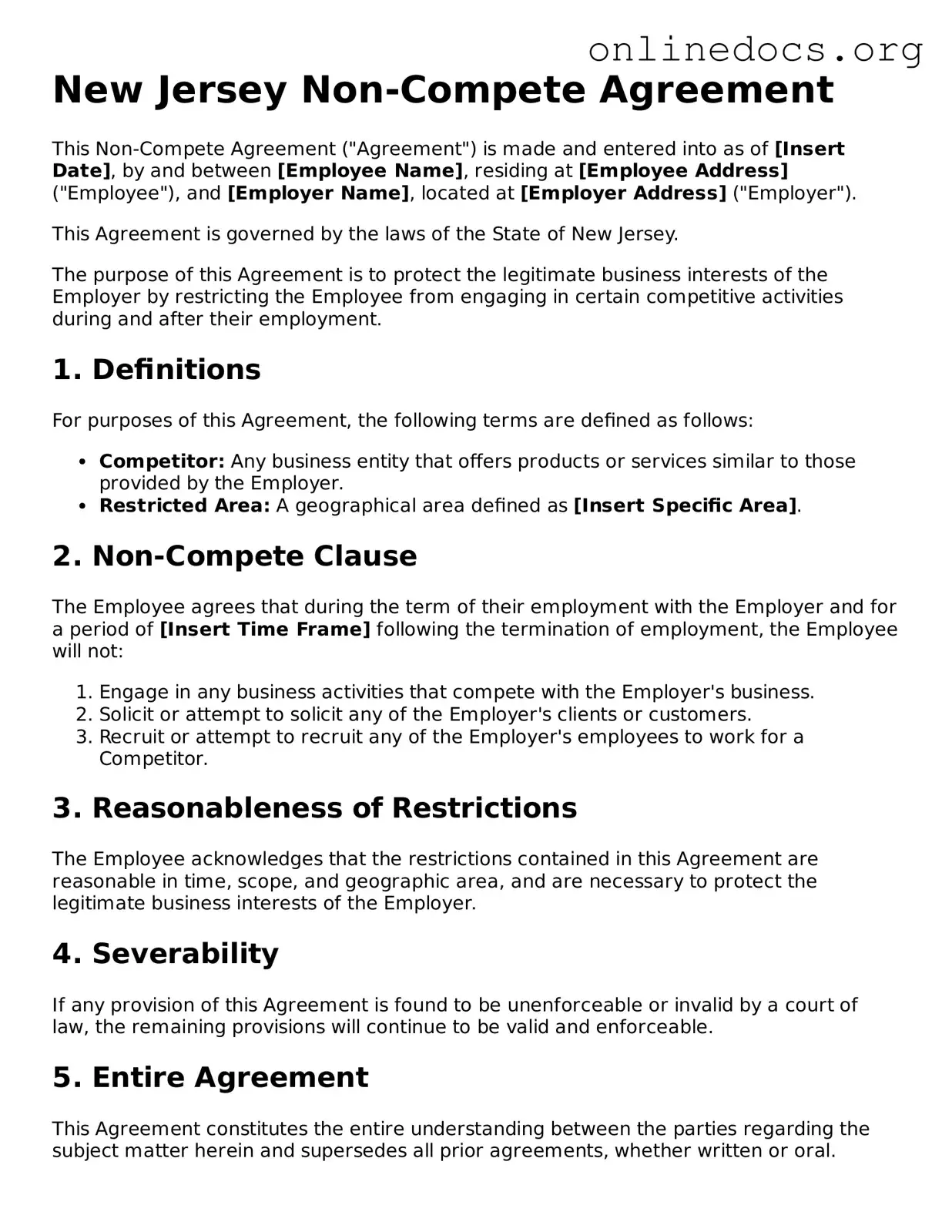Filling out a New Jersey Non-compete Agreement form can be a complex process. Many individuals make mistakes that can lead to misunderstandings or unenforceable agreements. One common error is failing to clearly define the scope of the non-compete. Without precise language, the agreement may be too broad or vague, making it difficult to enforce.
Another frequent mistake is neglecting to specify the duration of the non-compete. An agreement that does not clearly state how long the restrictions apply can create confusion. Employers and employees may have different interpretations, leading to potential legal disputes.
People often overlook the importance of geographic limitations. A non-compete that does not outline the specific areas where the restrictions apply may be deemed unreasonable. Courts typically require that these limitations are both reasonable and necessary to protect legitimate business interests.
Some individuals fail to consider the consideration, or compensation, for signing the agreement. In New Jersey, a non-compete agreement must provide something of value in exchange for the employee's promise not to compete. Without this, the agreement may not hold up in court.
Inaccurate or incomplete information about the parties involved can also lead to issues. It is essential to ensure that all names and addresses are correct. Errors in this section can result in difficulties enforcing the agreement later on.
Many people do not seek legal advice before signing a non-compete agreement. Consulting with an attorney can help clarify terms and ensure that the agreement complies with New Jersey law. Without professional guidance, individuals may inadvertently agree to unfavorable terms.
Some individuals fail to understand the implications of signing a non-compete agreement. A lack of awareness regarding the rights being waived can lead to significant career limitations. It is crucial to fully comprehend what the agreement entails before signing.
Another common mistake is not keeping a copy of the signed agreement. Having a personal record of the document is vital for future reference. Without a copy, individuals may find themselves at a disadvantage if disputes arise.
People sometimes rush through the signing process without reviewing the entire document. This haste can result in overlooking critical clauses or terms. Taking the time to read and understand the agreement is essential.
Finally, failing to update the agreement when circumstances change can create problems. If an employee's role or the nature of the business evolves, the non-compete may need to be revised. Regularly reviewing and updating the agreement ensures it remains relevant and enforceable.
